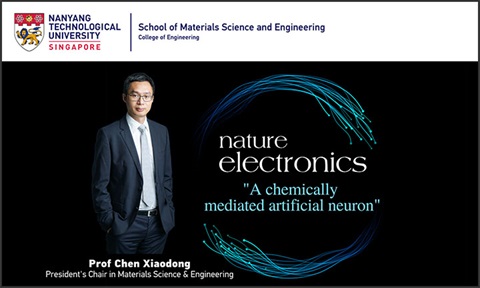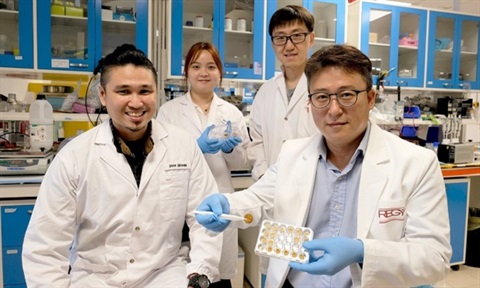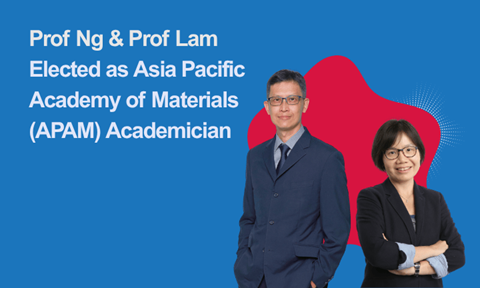NTU Singapore scientists develop device to 'communicate' with plants using electrical signals – Professor Chen Xiaodong
NTU Singapore scientists develop device to 'communicate' with plants using electrical signals – Professor Chen Xiaodong
We are delighted to share that the research achievement of Professor Chen Xiaodong and team, has been featured in various media.
The team has developed a device that can deliver electrical signals to and from plants, opening the door to new technologies that make use of plants. They developed the plant 'communication' device by attaching a conformable electrode (a piece of conductive material) on the surface of a Venus flytrap plant using a soft and sticky adhesive known as hydrogel. With the electrode attached to the surface of the flytrap, researchers can achieve two things: pick up electrical signals to monitor how the plant responds to its environment, and transmit electrical signals to the plant, to cause it to close its leaves.
Lead author of the study, Chen Xiaodong, President's Chair Professor in Materials Science and Engineering at NTU Singapore said: "Climate change is threatening food security around the world. By monitoring the plants' electrical signals, we may be able to detect possible distress signals and abnormalities. When used for agriculture purpose, farmers may find out when a disease is in progress, even before full‑blown symptoms appear on the crops, such as yellowed leaves. This may provide us the opportunity to act quickly to maximise crop yield for the population."
The breakthrough research has been published in Nature Electronics, with the title “An on-demand plant-based actuator created using conformable electrodes” that has been shared here previously. This article has also been highlighted as the cover page of the issue- Nature Electronics, Volume 4, Issue 2 (https://www.nature.com/natelectron/volumes/4/issues/2) 
Cover Page of Nature Electronics, Volume 4, Issue 2. Source: Nature Electronics
From left: Li Wenlong, Prof Chen Xiaodong, Prof Loh Xian Jun and Dr Luo Yifei share their research breakthrough. Photo credit: NTU
Seeking to improve the performance of their plant 'communication' device, the NTU scientists also collaborated with researchers at the Institute of Materials Research and Engineering (IMRE), a unit of Singapore's Agency for Science, Technology and Research (A*STAR). The team has discovered that by using a type of hydrogel called thermogel - which gradually transforms from liquid to a stretchable gel at room temperature - it is possible to attach their plant 'communication' device to a greater variety of plants (with various surface textures) and achieved higher quality signal detection, despite plants moving and growing in response to the environment.
Elaborating on this study, co-lead author Professor Chen Xiaodong said, "The thermogel-based material behaves like water in its liquid state, meaning that the adhesive layer can conform to the shape of the plant before it turns into a gel. When tested on hairy stems of the sunflower for example, this improved version of the plant 'communication' device achieved four to five times the adhesive strength of common hydrogel and recorded significantly stronger signals and less background noise."
Co-lead author of the study, Executive Director of IMRE, Professor Loh Xian Jun, said: "The device can now stick to more types of plant surfaces, and more securely so, marking an important step forward in the field of plant electrophysiology. It opens up new opportunities for plant-based technologies."
This study has been published in Advanced Materials, with the title “A Morphable Ionic Electrode Based on Thermogel for Non-invasive Hairy Plant Electrophysiology”. The article can be found here: https://onlinelibrary.wiley.com/doi/10.1002/adma.202007848
Our heartiest congratulations to Professor Chen and team on their excellent achievements!
Media coverage:
The Straits Times, page 4, 18 Mar
The Straits Times online, 16 Mar
CNA Singapore Tonight, 10pm, 16 Mar
Channel 8 online, 16 Mar
Lianhe Zaobao, page 4 and online, 17 Mar
Reuters, 12 May
NY Post, 12 May
CNN Indonesia, 15 May
World Economic Forum, 17 May





